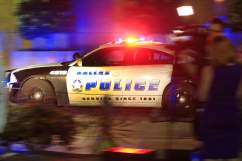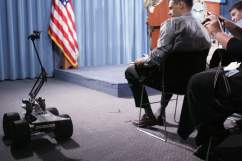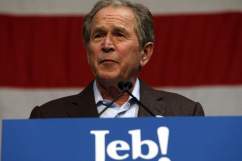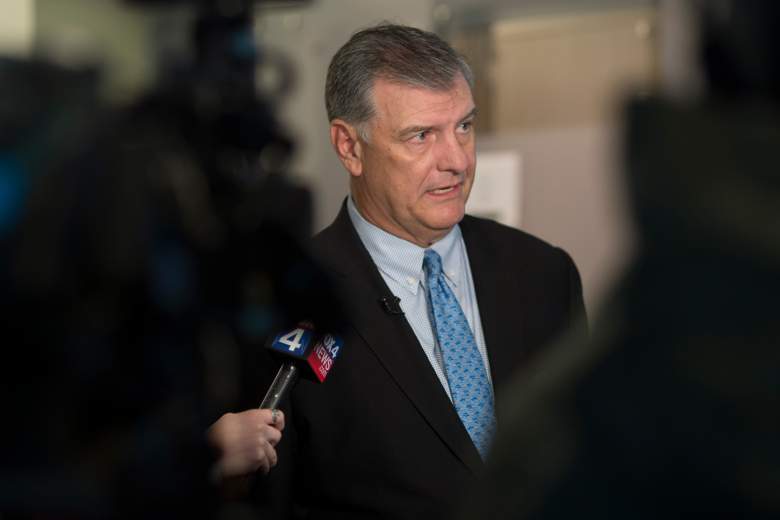
Mike Rawlings has been the mayor of Dallas since 2011. He was re-elected in 2015. (Getty)
Mike Rawlings, 61, is the Democratic Mayor of Dallas and was first elected in 2011. He was re-elected in 2015. On Thursday night, the city was the site for what started as a peaceful rally hosted by Black Lives Matter in response to the shootings of black men by police officers in Louisiana and Minnesota. Five police officers were killed by a sniper.
in a press conference Friday morning, Rawlings said that he believes that the city is now safe. He also announced plans for an interfaith prayer service at Thanksgiving Square.
Here’s a look at Rawlings and his response to the shooting.
1. Rawlings Said Suspect did not Have Explosives
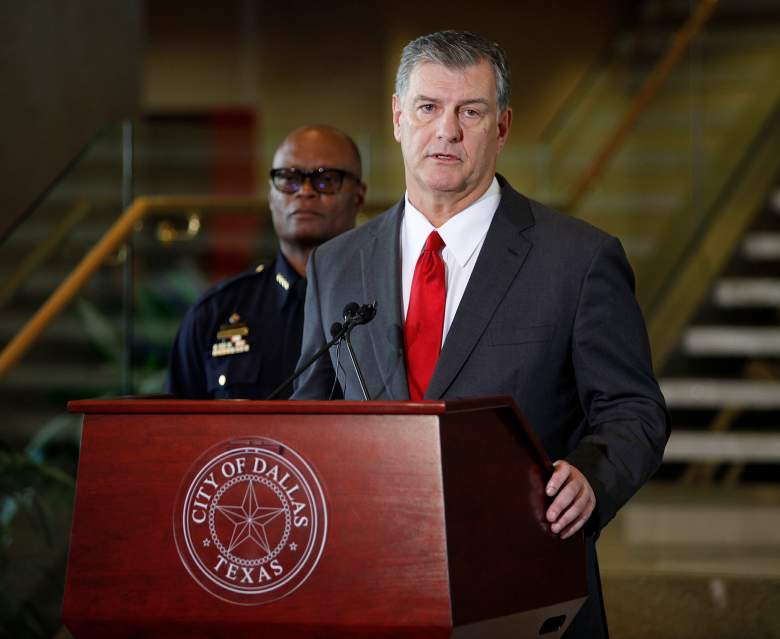
Mike Rawlings at Friday morning’s press conference. (Getty)
In an interview with ABC News, Rawlings said that although the suspect threatened to set off explosives, none were found. In fact, police used an explosive device themselves to kill the suspect after a standoff with him.
That suspect has since been identified as Micah X. Johnson. An official told The Los Angeles Times that Johnson had no known ties to terrorist groups or a criminal history.
Chief David Brown said in the Friday morning press conference that Johnson said he was angry “with white people” and was targeting white police officers.
In an early interview with NBC News though, Rawlings said authorities were “not ruling anything out,” including terrorism.
2. He Was once the CEO of Pizza Hut
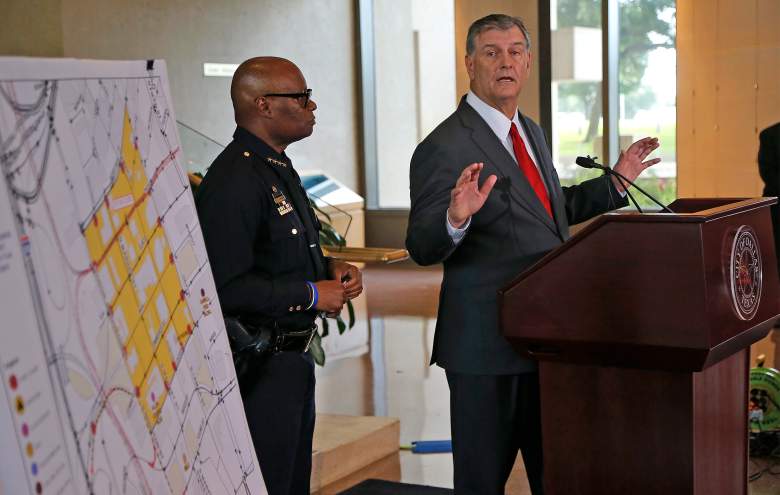
Mike Rawlings shows a map of the area of downtown Dallas that’s been closed. (Getty)
Rawlings arrived in Dallas after graduating from Boston College in 1976. The Borger, Texas native went into marketing and advertising with TracyLocke. His next job was as CEO of the largesy pizza company in the world, Pizza Hut.
According to SMU, Rawlings was also the Managing Partner at CIC Partners. He was also the “Homeless Czar” in Dallas, overseeing the opening of The Bridge, which helps homeless men and women in the city.
3. Rawlings Took the Blame for a Spike in Violence Earlier This Year
In April 2016, Rawlings and Police Chief David Brown took the blame for a surprising jump in violent crime in Dallas, including a 75 percent jump in murders, reports The Dallas Morning News. Rawlings also said he stood by Brown’s controversial decision to move 600 offers to different shifts and task forces. That number was later clarified to just 247 officers being moved to different shifts.
“Our communication to our citizens could’ve been better, but I think the intentions were good,” Rawlings said in a press conference. “Chief Brown and his commanders recognized an uptick in crime and they moved quickly, and that’s what you want police officers to do.”
Rawlings said that Brown’s request for 50 new police officers needed to be fulfilled.
“This is on my watch,” Rawlings explained. “It would be a terrible malfeasance as a mayor to sit back and say, ‘Let’s just keep on doing what we’re doing’ with crime going up, and that’s why we’re taking this action.”
4. Rawlings Welcomed Refugees From Syria With Open Arms
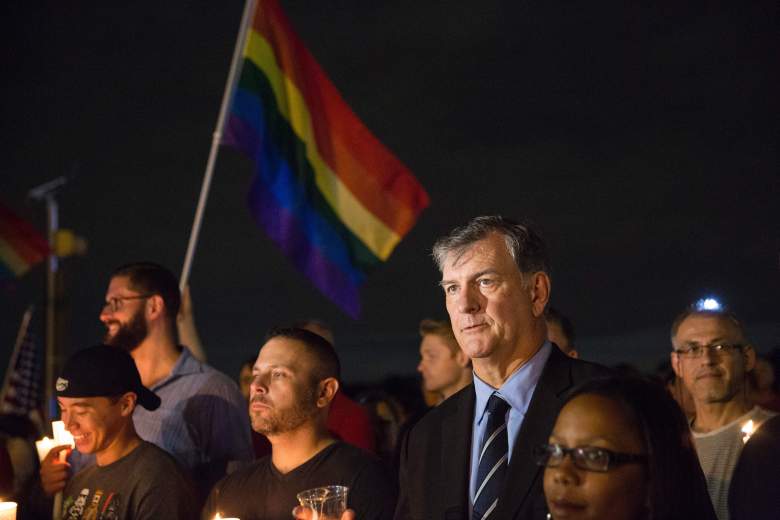
Mike Rawlings at a vigil for the victims of last month’s Orlando mass shooting. (Getty)
Last fall, Rawlings gained national media attention for saying he would accept Syrian refugees fleeing ISIS in Dallas. That was in stark contrast to Texas Governor Greg Abbott, who was among the governors who said they wouldn’t allow Syrian refugees into their states.
“I would participate in any organized, thoroughly vetted program that the country asks Dallas to participate in to make sure people were resettled that were fleeing ISIS and fleeing the terror that is there,” Rawlings said in November, reports the Dallas Morning News.
Since 2014, over 200 Syrian-born refugees were moved to Texas, including 77 in the Dallas-Fort Worth area, the Morning News notes.
“ISIS wants us to be divided on this issue,” Rawlings told MSNBC in November. “ISIS wants us to demonize these Syrian refugees, us to alienate these children.”
In that same interview, Rawlings said he was “more fearful of large gatherings of young white men that come into schools, theaters and shoot people up, but we don’t isolate young white men on this issue.”
5. Rawlings Said Dallas Needs Better Race Relations
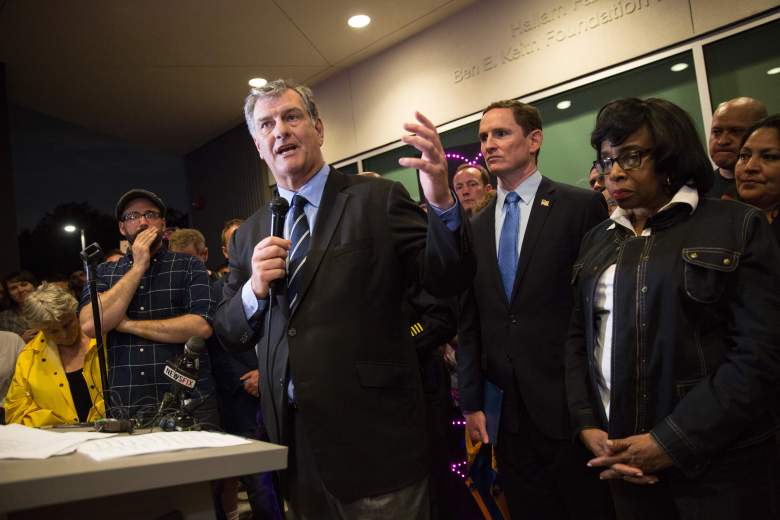
Mike Rawlings. (Getty)
After Rawlings announced his plans to run for a second term, he told Dallas Business Journal that race is still a concern for the city.
“With the unrest we saw in Ferguson (Missouri) just last week, I am reminded that we are ever so close to that happening here in Dallas. That is why it is about providing hope for the disenfranchised. Race continues to be an issue in our hometown,” he told the Business Journal in December 2014.
In an op-ed for the Dallas Morning News in October 2014, Rawlings said that focusing on helping those in poverty would improve race relations.
“Why is this important?” he wrote of poverty. “Because until we start to better understand this divide, we will not make major dents in important issues. We would have better race relations, a better educational system, a better health care system, a better criminal justice system and a better quality of life in our city if we could answer this question: Why is capital such a good friend to some and so foreign to others?”
